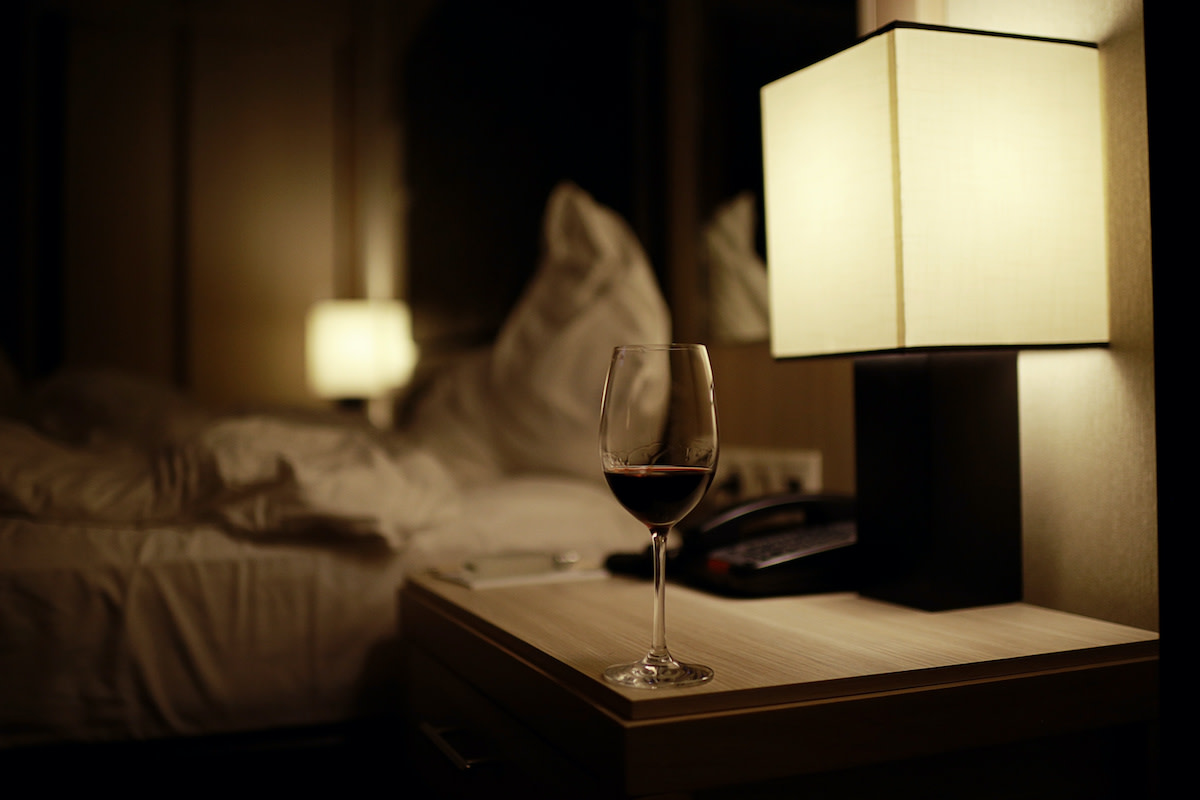Alcohol and Sleep: How Alcohol Disrupts Your Sleep
Written by MasterClass
Last updated: Jun 7, 2021 • 2 min read
Alcohol consumption may lead to drowsiness, but it can actually inhibit normal sleep cycles and create sleep problems.
Learn From the Best
General Effects of Alcohol on Sleep
The use of alcohol, particularly alcohol abuse and heavy drinking, can impede the body’s central nervous system and cause sleep disruption. Alcohol usage can exacerbate existing medical issues such as obstructive sleep apnea. Alcohol can also worsen conditions of depression and anxiety, which often link to insomnia and other sleep problems.
3 Ways Alcohol Disrupts Sleep
Alcohol intake can alter all stages of sleep, including REM sleep and non-REM sleep, and it can affect the following bodily functions:
- 1. Sleep physiology: Alcohol causes short-term sedative effects that trigger light sleep stages at the beginning of the night. In the second half of the night, alcohol disrupts sleep patterns and causes unnatural periods of wakefulness.
- 2. Hormone secretion: The biological effects of alcohol consumption include altered secretion of hormones, such as melatonin and human growth hormone (HGH). These hormones are naturally secreted as part of the body's circadian rhythm, but elevated blood alcohol levels can interrupt this cycle and alter the quality of sleep.
- 3. Neurochemical reception: Even a small amount of alcohol can interfere with the function of neurotransmitters, particularly gamma aminobutyric acid (GABA) and glutamate. This interference works downstream to inhibit the actions of the body's central nervous system. Alcohol may also alter production and reception of the neurotransmitter adenosine, which can lead to sleep disturbance.
5 Tips for Falling Asleep Without Alcohol
Alcohol may help you quickly fall asleep, but it will not result in better sleep. Alcohol interferes with deep sleep and the rapid eye movement (REM) stages that help you feel restored the next day. Consider using these methods and sleep aids instead of alcohol:
- 1. Practice mindful relaxation techniques. A bedtime ritual of deep breathing exercises and slow exhales can promote progressive muscle relaxation. You can combine these breathing techniques with visualizing a relaxing scene. Mindfulness and visualization can eliminate tensing and allow the body to drift from wakefulness into unconsciousness.
- 2. Develop a bedtime routine. Ritual can lead to better sleep. Try building a bedtime routine. This might involve taking a bath, drinking warm milk, or listening to relaxing music. You can train your body to associate bedtime rituals with sleep onset.
- 3. Lower the temperature of your bedroom. Sleep experts recommend a nighttime room temperature of 60 to 67 degrees Fahrenheit for optimal sleep. A lower room temperature leads to a lower body temperature, which informs your brain that it is time to sleep.
- 4. Limit electronic devices. Exposure to light—particularly the blue light emitted by electronic displays—can disrupt the body's sleep-wake cycle. Limit your use of electronic devices before bed, or use a blue light filter after sundown.
- 5. Play relaxing sounds. Before going to bed, calm your nervous system with tranquil sounds, such as soft music, nature sounds, or white noise.
Want to Learn More About Catching Those Elusive Zs?
Saw some of the best darn logs of your life with a MasterClass Annual Membership and exclusive instructional videos from Dr. Matthew Walker, the author of Why We Sleep and the founder-director of the Center for Human Sleep Science at the University of California, Berkeley. Between Matthew’s tips for optimal snoozing and info on discovering your body’s ideal rhythms, you’ll be sleeping more deeply in no time.
